Iowa Caucuses In December? Our Broken Primary Scheduling System
Once again, the primary scheduling race is getting ridiculous.
Over the past couple years, the Republican National Committee has undergone another round of debate over primary scheduling for the 2012 election. Hoping to avoid the situation in 2008, when the Iowa Caucuses took place on January 3rd and the New Hampshire Primary only a few days later, a system of sanctions was imposed to ensure that Iowa and New Hampshire would retain their “first in the nation” status and that most of the rest of the primaries would be later in the year. The RNC’s best laid plans seem to be falling apart, though, and now there are threats that conflicts over scheduling could put the start of the 2012 voting sometime in 2011:
Iowa officials are being very clear: no matter the chatter or any official moves from other early states to move up their primary dates, the first caucuses will stay first.
And if that means pushing the voting to January — or even December — to make sure that no other early state leapfrogs to the front, Iowa GOP spokesman Casey Mills says they’re ready to do it.
“We’ve been consistent and vocal since the beginning of this conversation in that while the date of the caucus could change, the order will not,” Mills said.
For all the continuing flux of the 2012 primary schedule, Mills said he believes all the states currently out of compliance with the rules of the Republican National Committee will move their primaries back, letting Iowa stick with the scheduled Feb. 6 caucuses.
While several other states have made their 2012 primaries later after pushing them ever earlier for 2008, the jockeying to be first continues among the early states. More than local pride is at stake: early victories can propel candidates forward, and several of the candidates have heavily prioritized operations in one state over others — and in the case of Jon Huntsman, opted against an Iowa campaign altogether.
New Hampshire Secretary of State Bill Gardner said he won’t even think about setting a date until Missouri, Florida, Arizona and Wisconsin, among others, set theirs. He didn’t offer any predictions about what the final date would be, but said New Hampshire would go at least seven days before every other primary – regardless of how early that makes it. He said he didn’t expect to set a date before mid- to late fall.
“Four years ago, I did it the day before Thanksgiving,” said Gardner. ” … I don’t know, but I think [2012] will be similar to four years ago.”
There are similar issues in the South, where South Carolina wants to maintain it’s “First in the South” status but the state GOP faces the issue of having to figure out how to pay for primaries now that the Governor, a Republican, has announced that the state will not be doing so. We could end up with the South Carolina Caucuses, or we could end up with Florida coming much earlier in the cycle than planned.
These scheduling issues are silly, but there also somewhat unavoidable since we’re dealing with three different entities — the RNC, the state committees of each individual state, and the state legislature — each of which have their own interests. At the national level, the national committee wants a nominating schedule that makes sense and, preferably, doesn’t start too early. The incentives at the state level, though are to enhance the state’s leverage in the nominating process. Additionally, as we’ve seen in South Carolina, there may also be conflicts between the state goverment and the state party over who is supposed to pay for a primary, a factor that is more important given the austerity measures many states have been forced to pass.
These conflicts and competing interests are multiplied when both the GOP and the Democrats both have contested Presidential primaries.
I’m not sure what the solution is to this problem. The ideal situation would be regularly scheduled primary dates, but that would require agreements among all the groups mentioned above. Rick Moran suggests a National Primary Day, but I’m not sure that’s the right answer either. A primary contest that ends on one day with primary battles in all 50 states — sort of a pre-General Election Election — would clearly favor candidates with large warchests and establishment ties. Also, I think there’s some value in letting voters see how candidates perform over the extended primary campaign season.
Instead, it seems to me that the best option would be something along these lines:
- Divide the country into four regions with as fair a balance between big and small states as possible
- Beginning in March, there will be one Regional Primary per month with delegates to be allocated according to the rules of the respective political parties
- Each party agrees that any state that schedules its primary outside the Regional Primary date, or before the first Regional Primary, will have its delegate count at the National Convention reduced by 50%
That’s just off the top of my head and, for the reasons I note above, I’m not sure how it could be implemented. However, I think we can all agree that the 2008 primary schedule — where the Iowa Caucuses occurred only two days after the new year began — was absurd, and that starting the primary voting in December would be utterly ridiculous.
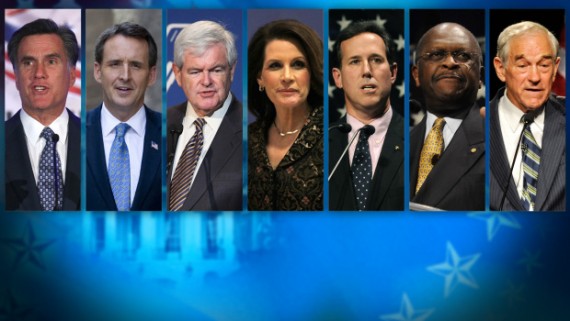

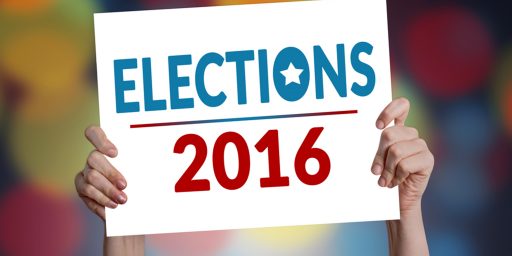
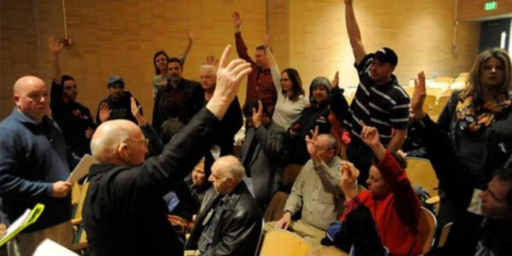
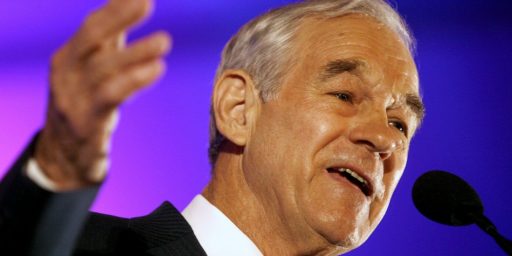
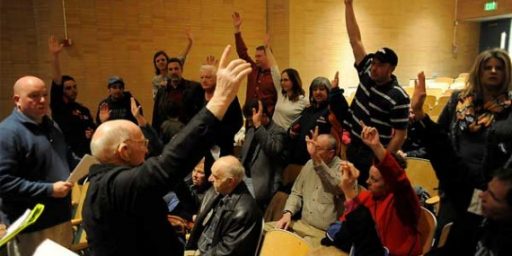
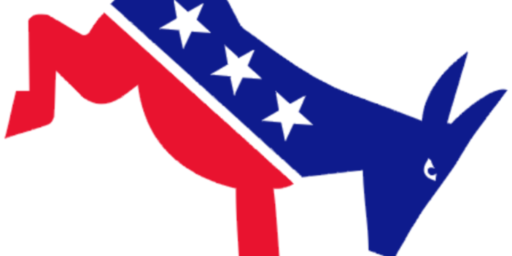
One wonders if there becomes a point where the process could be so stretched-out that being first loses it’s influence. A late fall caucus in Iowa and primary in New Hampshire could reduce the field in a way that makes it attractive for new candidates to enter the race with plenty of votes left to seek.
I’ve long supported a national primary with a run-off but four or five regional primaries with a rotation of regions every cycle would be my second choice. States that didn’t adhere to the schedule simply wouldn’t count.
Currently it looks like the media is choosing the Republican candidate, so there might not actually be a need for primaries at all. It would save South Carolina all that money…
Rick Perry is the dark horse here, I’m pretty certain his campaign is discussing the right time for an announcement, if there is one; too soon and the media will find a way to destroy him before any primaries are held, too late and he might not be able to get enough speed for the primaries.
I know it’s wrong but a certain vicious part of me is looking forward to the GOP primary bloodbath. It has all the makings of a wild ride what with all the concentrated crazy. I agree the system is broken and we really should fix it, but then again I want to get my freak on now not later.
A national, or even regional, primary would pretty much ensure that the winning candidate is someone who can generate the money early enough to effectively compete in 50 (or 10 or so for regional) states at the same time.
Granted, that’s who we get anyway, but this would shut the other candidates out early, and remove their “unique” voices from the process. Herman Cain would be gone.
It would also favor a candidate who can peak at the right moment, rather than one with a sustainable level of support.
I think the current system, for all its obvious flaws, gives better outcomes. I’d tweak it a lot, setting the order of the primaries to be based on the closeness of the previous presidential election in that state, with a couple of skewing factors based on size (favor smaller, so more candidates get a chance earlier) and access to media markets (New Jersey, which is dominated by NYC and Philly TV stations, is too expensive for it’s size and must always go last, filthy armpit of the nation it is)
Just looking at all these faces above makes me sad. How did this great country get to a point that these nuts are even contenders. With all the money and corruption in America is it possible to get anything better, maybe there is hope though, that maybe it`s a sign that the majority of the people would not sell their souls to the devil for money.